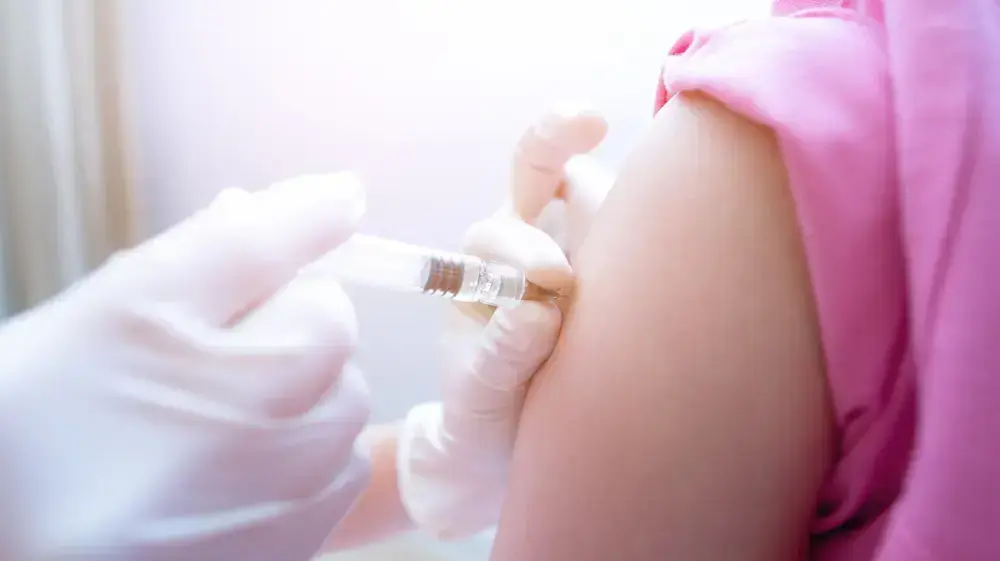It is possible to stop the virus that causes this cancer.
So why are women still sick of it?
On the face of it, cervical cancer should be a thing of the past - there is a vaccine against the papilloma virus, and it can be diagnosed early with a Pap test.
Still, 300 women are diagnosed with it every year in Israel.
Dr. Ido Laskov explains why this happens and how to protect against this cancer
Iris Cole
18/01/2022
Tuesday, 18 January 2022, 12:01 Updated: 12:10
Share on Facebook
Share on WhatsApp
Share on Twitter
Share on Email
Share on general
Comments
Comments
Cervical cancer is the third most common gynecological tumor, and it can affect women of any age, even at a young age.
Although there is a papillomavirus vaccine that causes this cancer, hundreds of thousands of women get it every year around the world.
On the occasion of Cervical Cancer Awareness Week, we invited Dr. Ido Laskov, Deputy Director of the Department of Gynecology and Oncology at Ichilov Hospital, to a specialist clinic to understand why this happens and how to protect against this cancer.
More on Walla!
Due to the growing demand for effective pain treatment: B-Cure laser in a special operation
Served on behalf of Bee Cure Laser
Dr. Laskov explained that it is a cancer that originates in cervical cells. This cancer affects young women relative to other cancers, around the age of 35-40. Although awareness of the disease is high, these ages are usually the busiest ages in women's lives, so for the most part Unfortunately, there are those who miss Pap tests, and find out late. "Seven years or more, and then you miss out," he explained.
More on Walla!
Every woman just has to know about these 3 cancers
Every Jewish woman must do this test once in a lifetime
More money in the account: Where is the most profitable to open a savings plan?
And this point of early detection and prevention is especially important.
Therefore, it is also important to be aware of the body, the menstrual cycle and the changes that take place in it.
"Early detection is very important," Dr. Laskov explained, adding that women should be aware of and pay attention to bleeding, changes in menstruation, difficult menstruation, bleeding during sexual intercourse and more. In such cases the gynecologist should be consulted. "Our options are better," he clarified.
Any sexually active person will be infected with the papilloma virus
Cervical cancer is mainly affected by changes associated with papilloma, a very common virus. "In fact, all sexually active men and women will be infected with this virus," Dr. Laskov explained. "It's a virus that causes pre-cancerous changes in the cervix." The population is contagious at some point in life, only with the exception of women will it cause certain problems, even less so - mild-to-moderate pre-cancerous changes, and only at the end of the pyramid will those women suffer from actual cervical cancer. In other words, the absolute majority will be infected - and that will not affect them in any way. "
Dr. Laskov explained that around sex with a new partner there is likely to be an infection, and it is likely that they will detect the virus in a Pap test. Happens in most women.
There are few women whose body is unable to develop antibodies, and then the virus stays longer, and can produce damage or precancerous changes.
"When we detect the virus, we want to filter and see who in the population is at risk of developing pre-cancerous and even cancerous changes."
Do not give up the Pap test
It is important to understand that there are over 100 sub-strains of papillomavirus, and some will do nothing.
"We divide them into numbers. There are numbers that will do nothing, there are numbers that will cause warts, called condyloma, and there are those that will cause pre-cancerous or cancerous changes, strains that are high-risk tape, and if you locate them it puts the same patient under a magnifying glass, and we "She is being monitored until she gets rid of the virus," Dr. Laskov explained.
Develops slowly.
Cervical cancer cells (Photo: ShutterStock)
The process of developing cervical cancer is a slow process, which can take 10-15 years, even longer.
"Therefore, it is customary to do a Pap
test every three years. If a patient does it in an orderly manner, we can overcome the problem before the cancer develops," Dr. Laskov explained.
"On the cervix with devices that greatly enlarge the neck, we use all sorts of special dyes that help us differentiate between healthier and less healthy tissue, and if necessary do a small biopsy from the same area that looks less healthy," he explained. , She does not require anesthesia and that day go home.
At what age can you get a papilloma vaccine?
A papillomavirus vaccine is very effective, and greatly reduces the incidence of cervical cancer.
"The vaccine is also effective in preventing pre-cancerous lesions," Dr. Laskov said.
There will be no cases of cervical cancer. "However, although the vaccine is given at school for boys and girls for free before they are sexually active, only 50 percent of parents allow the vaccine because they are afraid." But the vaccine is effective and safe, "Dr. Laskov clarified.
"Hundreds of millions of such vaccines have been given worldwide, and it has been tested, safe and effective," he clarified.
Iris Cole interviews Dr. Ido Laskov on ways to detect and prevent cervical cancer (Walla system)
It is important to note that even those who have not been vaccinated at school age can be vaccinated.
"We vaccinate from high school, but the vaccine is allowed and recommended until age 45," Dr. Laskov explained, adding that the decision to get vaccinated
depends on the patient's lifestyle.
The Pap, get vaccinated of course, and if there are suspicious changes - seek examination. "Usually, the follow-up itself is sufficient and does not require any intervention, because it will just go away on its own, and in some cases you have to intervene - and even then the problem is completely solved," concluded Dr. Laskov.
health
Tags
Cervical cancer
Pap test
Papilloma









